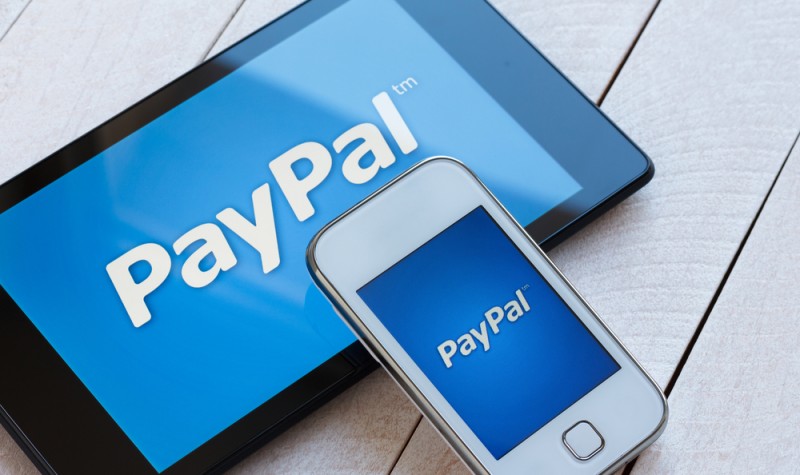PayPal’s new playpen

Like Oedipus before it, PayPal has (sort of) slayed its father eBay and taken the e-commerce seller’s place on the S&P 100 after the online payment system provider spun-off from the company that bought it for $1.5 billion back in 2002.
So how will the nascent stock fare untethered from its (former) parent?
Well, early signs are good. By the end of its first day of trading PayPal had a market cap of nearly $50 billion, dwarfing eBay’s post-Paypal market cap of $34 billion, and in the process putting the newly-listed company above stocks like Netflix and Twitter in terms of that metric. It’s undoubtedly an exciting debut for the company, launched in 1999 by the now defunct Confinity Inc, but one that carries with it new challenges. Instead of existing as the jewel in the increasingly rusty crown of eBay, Paypal now has to stand on its own two feet and exist on merits that go beyond the comparison with its former-parent’s marketplace (lack of) growth.
Not that it should be a problem, at least in the short term. PayPal’s second quarter performance, its last under the eBay moniker, saw transaction volume grow by an impressive 27% year-on-year; that equates to a pretty staggering 1.1 billion transactions in total. This meant, for the second quarter in a row, PayPal’s quarterly net revenue outshone that of eBay’s flagship marketplace, at $2.26 billion against $2.12 billion. Similarly, full year revenue at the company is expected to increase between 15% and 18% from fiscal 2014’s $8 billion full year figure, a year it ended with 162 million users. That itself was a 13% increase on 2013’s user figures, and one that had already grown to 169 million by the end of 2015’s second quarter.
What could be an issue, however, is the increasingly crowded payment landscape PayPal is now facing. PayPal has rivals (to varying degrees) in the shape of Amazon Payments, Google Wallet, Stripe, Facebook, the long-rumoured development from Samsung, a potential product from Microsoft, and, of course, Apple Pay, not to mention the host of other smaller imitators. So far PayPal has been savvy with its behaviour towards its rivals, displaying a mixture of M&A willingness and olive branch co-operation. In the last few months it has bought Paydiant (to help with its presence in physical stores) for $280 million and Xoom Corp (to increase its international presence) for $890 million, with CEO Dan Schulman (formerly of Virgin Money) on the hunt for even more purchases post spin-off as the company attempts to bulk up its armoury for the ever-growing mobile payment war.
A new front opened up in this war on July 14th, as Apple Pay arrived on British shores. Yet just as it was smart with its acquisitions, PayPal is ensuring that Apple’s latest product is integrated into its own services. The PayPal Here card reader will soon accept Apple Pay, and the PayPal-owned Braintree (a key acquisition back in 2013), which helps companies process online payments, will be adding Apple Pay support for businesses that use its platform. It is moves like these that suggest PayPal is in good hands; the company appears to know which battles it can win, and which battles it needs to change tact for. Its actions towards Apple Pay show a management team willing to take advantage of another company when it can (and if you are going to jump on anyone’s bandwagon, it might as well be Apple’s), whilst maintaining a confidence in its own products and services.
It likely won’t be until after the company’s full year results, i.e. two quarters free from eBay, alongside some clearer idea of the impact of Apple Pay, that PayPal’s form going forward can truly be assessed. However, for now the company is looking at an enviable amount of growth – growth that should make eBay’s next few years full of the kind of regret normally reserved for cast-off lovers.
For the latest spreads on PayPal, eBay and a host of others, make sure to check Spreadex!
Promoted by Spreadex
Spread betting carries a high level of risk to your capital and can result in losses larger than your initial stake/deposit. It may not be suitable for everyone so please ensure you fully understand the risks involved.
Spreadex Ltd is authorised and regulated by the Financial Conduct Authority, provides an execution only service and does not provide advice in any way. Nothing within this blog post should be deemed to constitute the provision of investment advice, recommendations, any other professional advice in any way, or a record of our trading prices.
Comments (0)